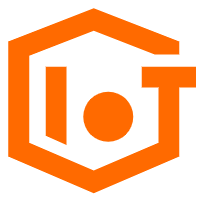Bolster the growth and digital transformation of your business amid the outbreak through the Anti COVID-19 SME Enablement Program. Get a $300 coupon package for all new SME customers or a $500 coupon for paying customers.
The COVID-19 pandemic will undoubtedly leave its mark in history, but how exactly will it shape the technologies of the future?
As we are now living in a digital area, we should pay close attention how this current pandemic will impact technology and what technologies will grow to help build a brighter and better future. Considering this question, we have invited Yu Feng, the chief architect of MYbank, to discuss his thoughts on what we will need in technological trends in the next decade after this current pandemic.

Yu Feng, Chief Architect of MYbank
I think that, first, we need to understand that, in the big picture, the current pandemic is only a little ripple in the river of time, and so, as devastating as it may be, it won't completely change many of the trends we're already seeing. The evolution and growth of computing power is one such trend.
Now that we are living in what can only be described as a digital era, cloud computing has become deeply rooted in our daily lives and widely used in all areas and aspects of business. And, with the development of cloud-native technology, cloud computing has become even more flexible. Cloud computing in a way will become a basic utility of the digital world—in fact it's already becoming that. It will be just like water and electricity in that regard. However, in the future, computing probably won't just be performed in a few data centers as it is now. Rather, "the cloud" of the future may be an all-enveloping thing. Everything will more or less be on the cloud.
This is largely because the development of Internet of Things (IoT) and 5G will bring people into the era of the Internet of Everything. In this new and exciting world, every node will possess its own computing power. Cloud computing will involve both the computing power of data centers and edge nodes. This whole idea is really what defines the concept of edge computing.
In today's world, we have hundreds of millions of mobile phones, smart devices, and mobile communication base stations. However, in the future, these devices will also become and serve as computing nodes. They provide us with computing power several orders of magnitude greater than what we have now.
So, what kind of impact will this revolution in computing power impose on society?
When thinking about epidemics and pandemics, what most people do not know is that the real turning point in mankind's fight against disease was in the 18th and 19th centuries. Due to the progress of science, specifically the invention of powerful optical microscopes allowed us to see bacteria. This gave us the first glimpse into the true causes of disease. As time went on, advances in chemistry allowed us to synthesize drugs to target specific diseases. Changes in computing and computing tools also gave us new weapons in this fight.
It was also during this period that the demand for computing power gave birth to the first mechanical computers. In turn, improvements in computing power promoted the progress of science. For example, we were able to sequence the genome of the coronavirus quickly and can perform human gene detection in a very short time and at low costs. This is a direct result of the integration of computing with life sciences and other disciplines. In a way, sciences and computing power mutually promote one another. Today, with our powerful computing capabilities, it is even possible to use artificial intelligence (AI) technology to simulate living systems in order to master the genetic codes of organisms.
In response to the pandemic, strict stay-at-home and shelter-in-place orders are being implemented, and many people are working from home. People are finding ways to stay connected online while slowing the spread. Moreover, they're also taking advantage of food delivery services to avoid inflection by staying home. In this context, things that used to need to be done offline are starting to be moved online.
In the past, people thought of the Internet as an industry onto itself, rather than infrastructure. This was because only people who worked with the Internet understood its true function. Today, however, all industries have to move their businesses online; this being especially true now. This means everyone has to learn how to use the Internet, communicate through voice and video conferences.
With 5G rolled out around the world, I believe the Internet will disappear as an industry and become what it really is: infrastructure.
Did you see many people standing in line to make a bank transfer today? Absolutely not. Low-cost services that currently require direct contact will become Internet-based in the future. Already online payment and mobile payment systems are highly developed. In the future, AI will be used in all payments. AI can control risks and ensure payment security while automating tasks that were previously done manually.
In fact, the movement of businesses to the Internet is a widely recognized trend. In the past, this was a gradual and imperceptible trend, but the epidemic has greatly accelerated it. Now, stuck inside, we rely on the Internet to meet all our needs. So far, it has proved up to the task.
There is no doubt that the Internetization of business will completely change our way of life. Now that large numbers of people are working remotely from home and attending classes online, we are realizing the benefits of this approach. For office workers who needed to commute several hours to work, working at home undoubtedly means a lot more free time and a better work-life balance. However, once working from home and online courses become more widespread, the office buildings and schools that defined our previous lives may change in unexpected ways.
The rapid movement of businesses to the Internet also means we will see a rapid growth of data. In the future, the volume of online data will be 100 times that of today. A major portion of this data will be in video format, such as video conferences and online classes. At the same time, due to the increase in valuable data, AI can play a bigger role in this evolution. The era of big video and big AI is almost upon us, and it is hard to imagine the explosive growth in demand for audio and video services we will see in the future. The popularity of short video and live video streaming apps today is just the beginning.
The current outbreak has taught us many profound lessons and gave us new experiences. One of the insights we have leaned from it is that, ultimately, we need to adopt strict isolation and exercise great caution in the face of an epidemic. This conclusion will give birth to new technological opportunities. To give a comparable example from the past, IBM started by providing technical support for the US census and then transitioned into a big data service provider for the government and enterprises to become the Blue Giant of today.
The control of population movements is the key to combating an epidemic. Otherwise, infection rates will spiral out of control and overwhelm the healthcare system. However, if 1.4 billion people are told to isolate themselves in their homes, it will pose a massive impact on the economy and society as a whole and the consequences will be unacceptable.
It is only by the rapid and precise detection of infections, thorough contact tracing, and careful isolation of the infected person and potential contacts that we can quickly overcome the epidemic so it does not destroy the economy and society.
In the past, this would have been impossible. But today, with everyone connected to the Internet, we can build a parallel digital world. Then, in this epidemic, if you apply for a health code and receive a green code, meaning you do not require special control, and you can go to work or travel across regions.
The current health code system is still in its infancy. It simply matches your information with known high-risk areas at the backend. If you have been to a high-risk area recently, you need to self-isolate for a period of observation. If more information, such as geolocation information and personal health data is added, more accurate automatic real-time monitoring can be implemented, which can even prevent people from being infected in the first place. For example, such a system could warn users not to go to high-risk areas.
Another way in which technology can be used to improve emergency response capabilities is the digitization and intelligentization of hospitals. At present, the academic community has made some progress in AI diagnosis. Currently, AI diagnosis can sometimes be more accurate than a doctor's diagnosis. Diagnosis through AI and network-based case analysis can help detect unknown infectious diseases at an early stage so we can take prompt measures. In this case, human intervention is unnecessary, which prevents the spread of infection and loss of control due to personal negligence or mismanagement.
This outbreak has taught us a bitter lesson, and we need to do everything we can to prevent a similar event from occurring again. Internet technology can help us manage outbreaks and other emergencies, and we technical experts must be bold in our imagination of future possibilities. However, opportunities come to those who are prepared. So we need to look at current trends and begin to prepare to seize new opportunities as they emerge.
While continuing to wage war against the worldwide outbreak, Alibaba Cloud will play its part and will do all it can to help others in their battles with the coronavirus. Learn how we can support your business continuity at https://www.alibabacloud.com/campaign/fight-coronavirus-covid-19
Learn How the VFX Artists of The Wandering Earth Using Alibaba Cloud to Get Back to Work?

2,599 posts | 764 followers
FollowAlibaba Clouder - April 29, 2020
Alibaba Clouder - July 13, 2021
Alibaba Cloud Experts Column - September 20, 2022
Alibaba Clouder - September 24, 2020
Alibaba Cloud Community - January 13, 2022
Alibaba Clouder - October 22, 2020

2,599 posts | 764 followers
Follow Platform For AI
Platform For AI
A platform that provides enterprise-level data modeling services based on machine learning algorithms to quickly meet your needs for data-driven operations.
Learn More IoT Platform
IoT Platform
Provides secure and reliable communication between devices and the IoT Platform which allows you to manage a large number of devices on a single IoT Platform.
Learn More Container Service for Kubernetes
Container Service for Kubernetes
Alibaba Cloud Container Service for Kubernetes is a fully managed cloud container management service that supports native Kubernetes and integrates with other Alibaba Cloud products.
Learn MoreMore Posts by Alibaba Clouder